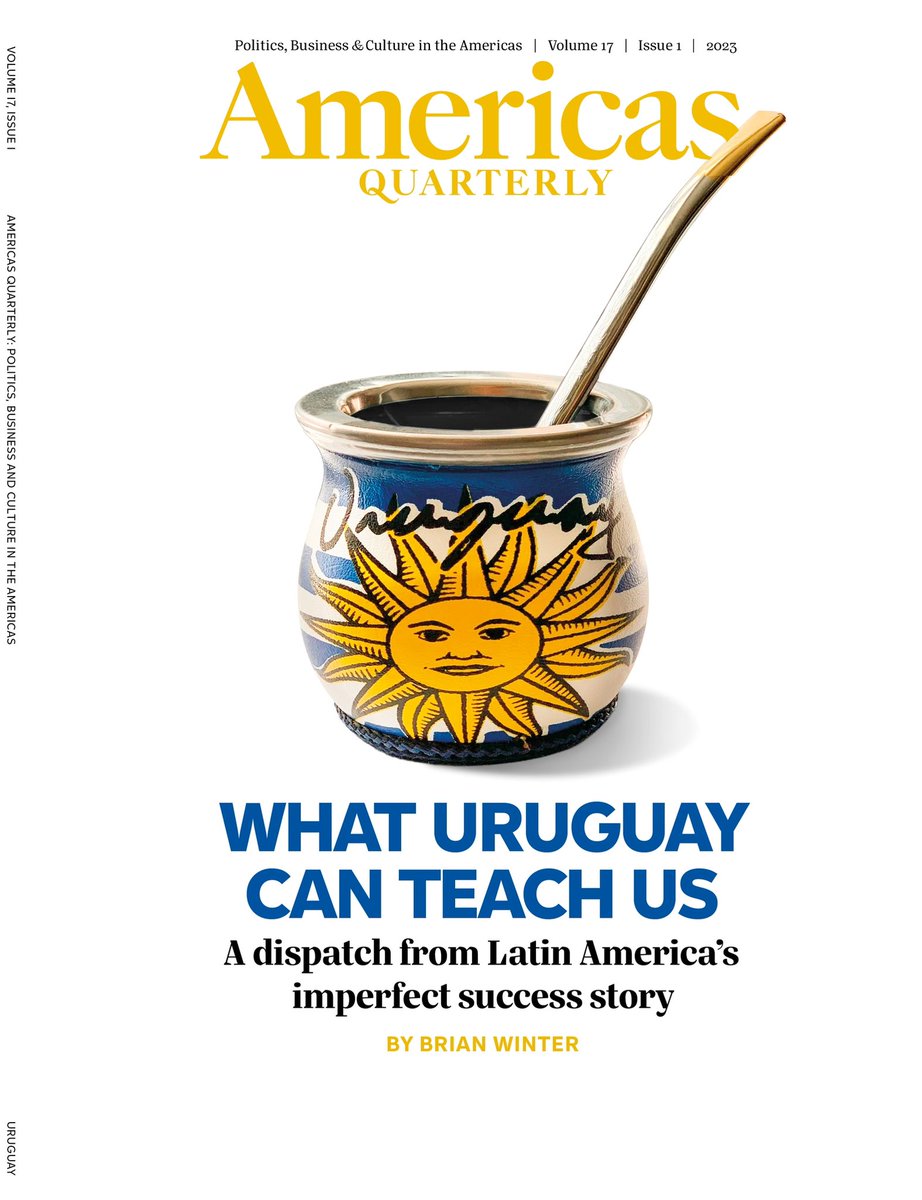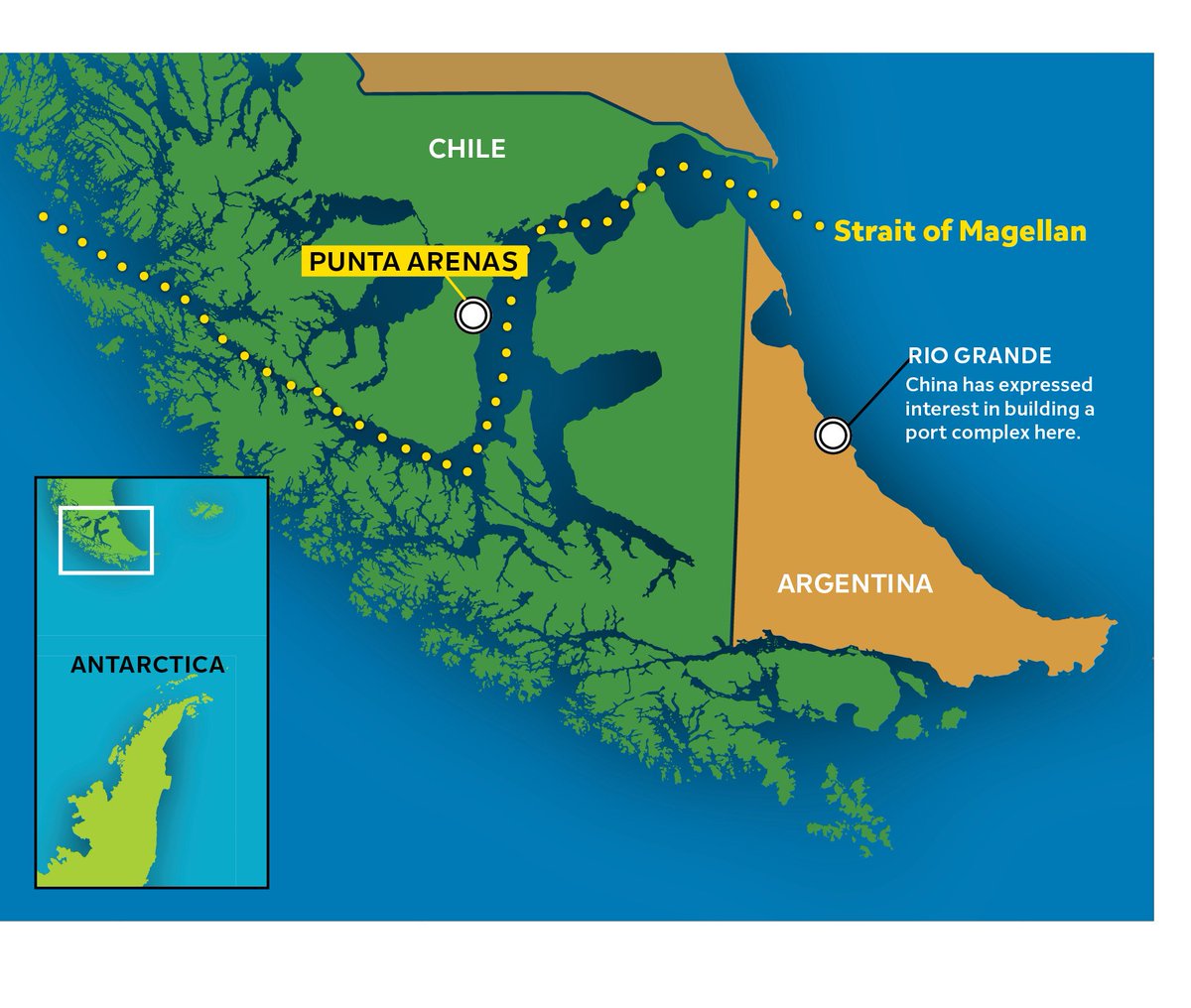The new issue of @AmerQuarterly explores how #Uruguay became arguably Latin America’s greatest success story. No, it’s not perfect — but it looks pretty good right now.
I visited in November & came away with 4 main reasons why. A🧵
I visited in November & came away with 4 main reasons why. A🧵

First, to define “success”
Uruguay is Latin America’s leader in many metrics — highest per capita GDP, lowest poverty rate. Its democracy is strongest in the region & above United States, Britain & Spain, according to EIU. Cleanest energy matrix, best institutions, etc, etc

Uruguay is Latin America’s leader in many metrics — highest per capita GDP, lowest poverty rate. Its democracy is strongest in the region & above United States, Britain & Spain, according to EIU. Cleanest energy matrix, best institutions, etc, etc


“Oh, Uruguay is so small, that’s why it’s successful.” Hmm Honduras is small too. And that 7% poverty rate — it was 40% just 20 years ago. Democracy only returned in 1985. So I think this story is “relatable” for other countries facing challenges.
So what are 4 keys to success?
So what are 4 keys to success?

1) “A social safety net strengthens democracy—and capitalism too”
Uruguay has oldest most generous welfare state in Latin America. Some call this socialism but giving people security gives them a stake in the system — Uruguay has never elected a true populist, there is consensus
Uruguay has oldest most generous welfare state in Latin America. Some call this socialism but giving people security gives them a stake in the system — Uruguay has never elected a true populist, there is consensus
“It almost doesn’t matter who’s in power; there’s a kind of social democratic consensus that doesn’t fundamentally change,” @NicSaldias told me. Conservative Lacalle Pou govt wants pension reform, etc, but not radical change. 

2) “Slow and steady wins the race”
The pace of everything Uruguay can be hard for outsiders — “Every day I want to scream,” one expat from São Paulo said. But as Yamandu Orsi told me: “What may look slow from the outside is often a democratic search for dialogue and consensus.”
The pace of everything Uruguay can be hard for outsiders — “Every day I want to scream,” one expat from São Paulo said. But as Yamandu Orsi told me: “What may look slow from the outside is often a democratic search for dialogue and consensus.”

3) “Institutions matter, especially when they’re accessible to the public.”
Even amid current alleged corruption scandal involving Lacalle Pou govt, the judiciary is doing its work and the country is proceeding normally. That’s a lot.
Even amid current alleged corruption scandal involving Lacalle Pou govt, the judiciary is doing its work and the country is proceeding normally. That’s a lot.
4) “Civility is difficult, but worth it”
This image aroused a lot of envy in Latin America — 2 ex-presidents, rivals on left & center right, accompanied Lacalle Pou to Lula’s inauguration. The story of how Uruguay built this culture is fascinating - it wasn’t always thus…
This image aroused a lot of envy in Latin America — 2 ex-presidents, rivals on left & center right, accompanied Lacalle Pou to Lula’s inauguration. The story of how Uruguay built this culture is fascinating - it wasn’t always thus…

This beautiful quote about civility in politics from Pepe Mujica, a former guerrilla leader in the 1970s who became president in 2010s (and a kind of anti-consumerism hero globally, with his 1986 VW Beatle). My god it’s beautiful, I read it like 25 times 

The full story is here. Not just Latin America, but all of us, could learn from Uruguay’s success. It’s not perfect but it may illuminate a path — a viable path — at this time when so many democracies are at risk or fading. Thanks for reading.
americasquarterly.org/article/what-u…
americasquarterly.org/article/what-u…
And here’s a link to the whole issue, with important essay on Uruguay’s trade policy by @ericfarns
americasquarterly.org/article/new-aq…
americasquarterly.org/article/new-aq…
PS just to remind you my REAL reason for traveling
https://twitter.com/brazilbrian/status/1592573479999533056
• • •
Missing some Tweet in this thread? You can try to
force a refresh












